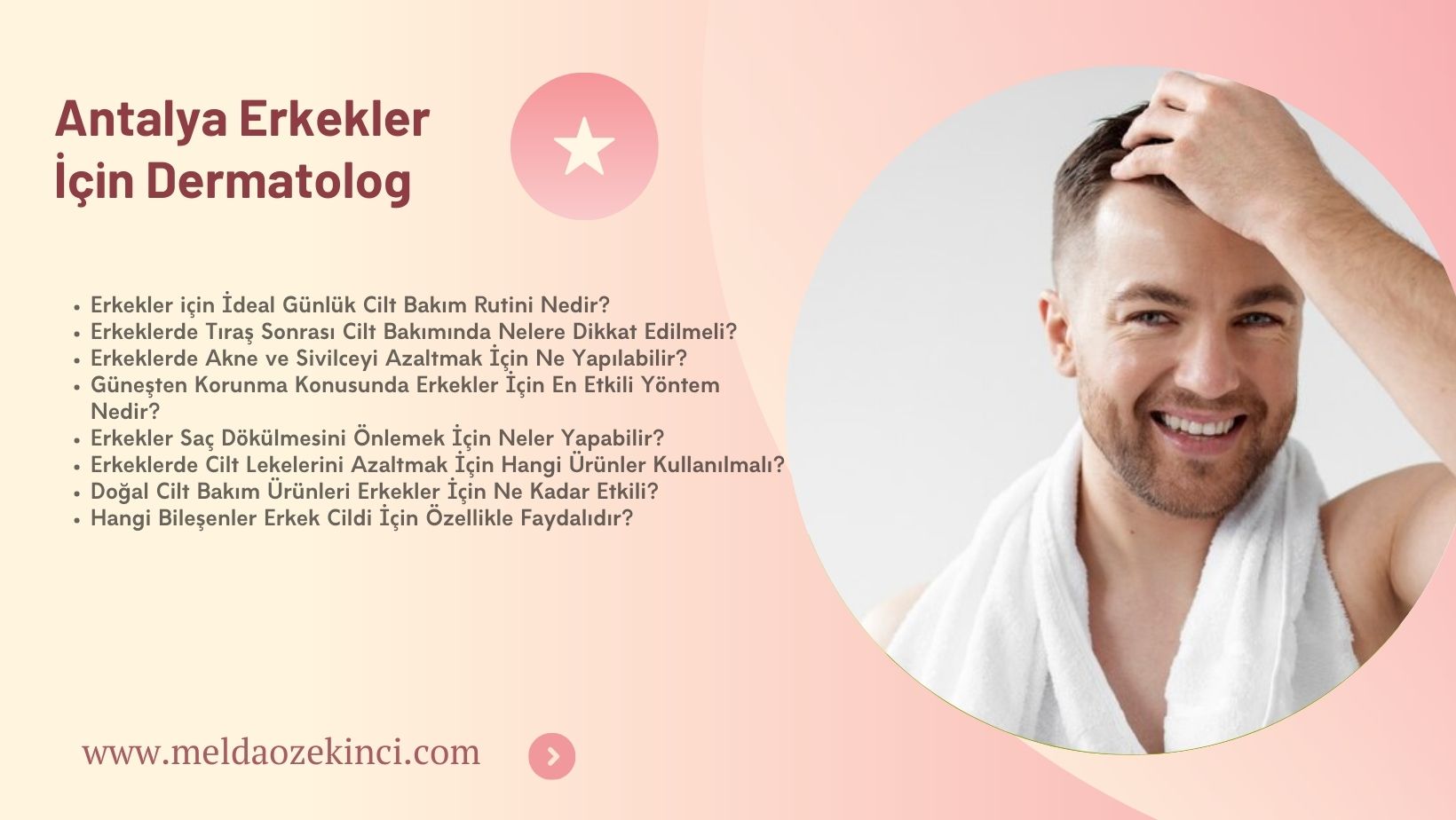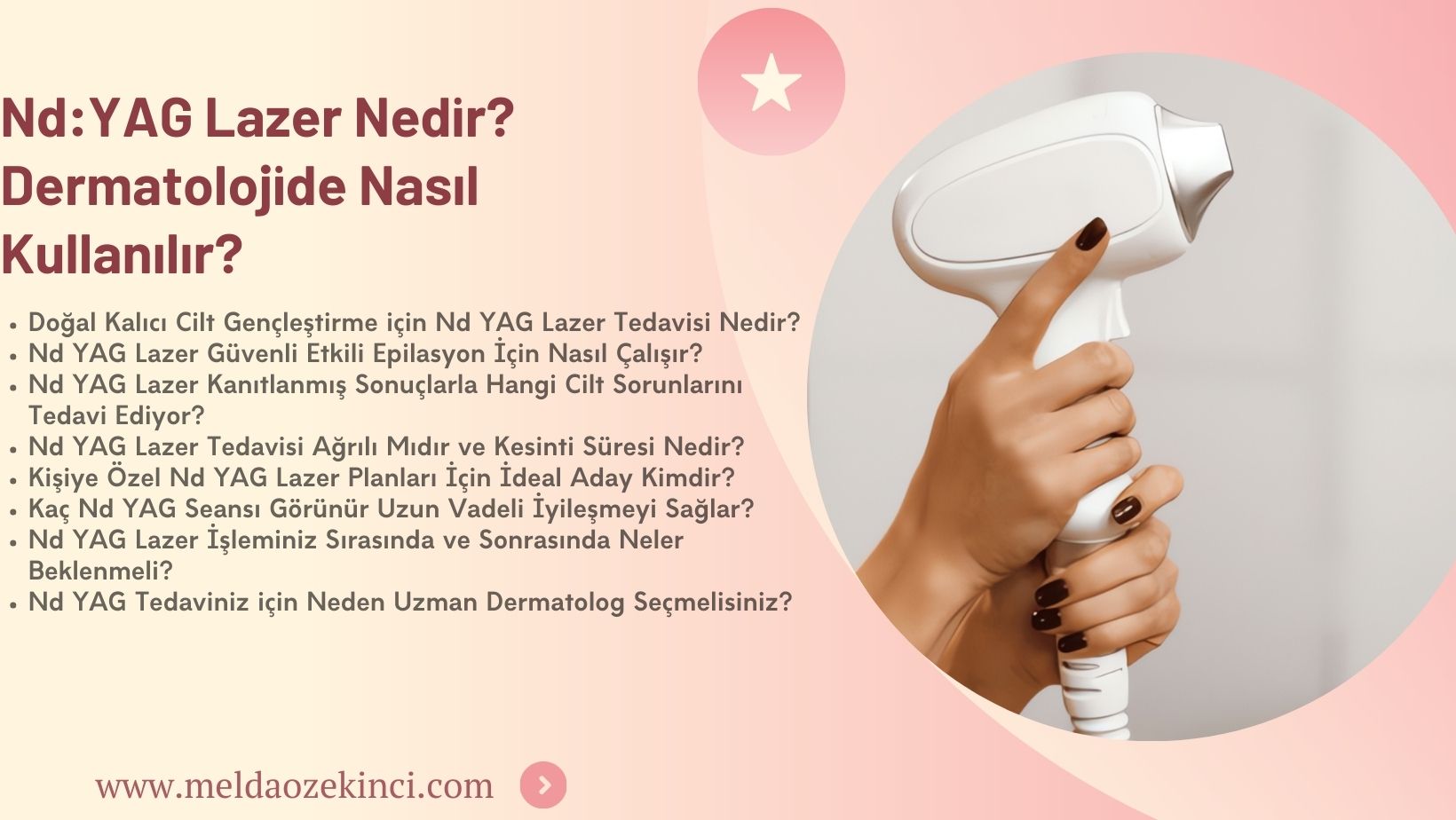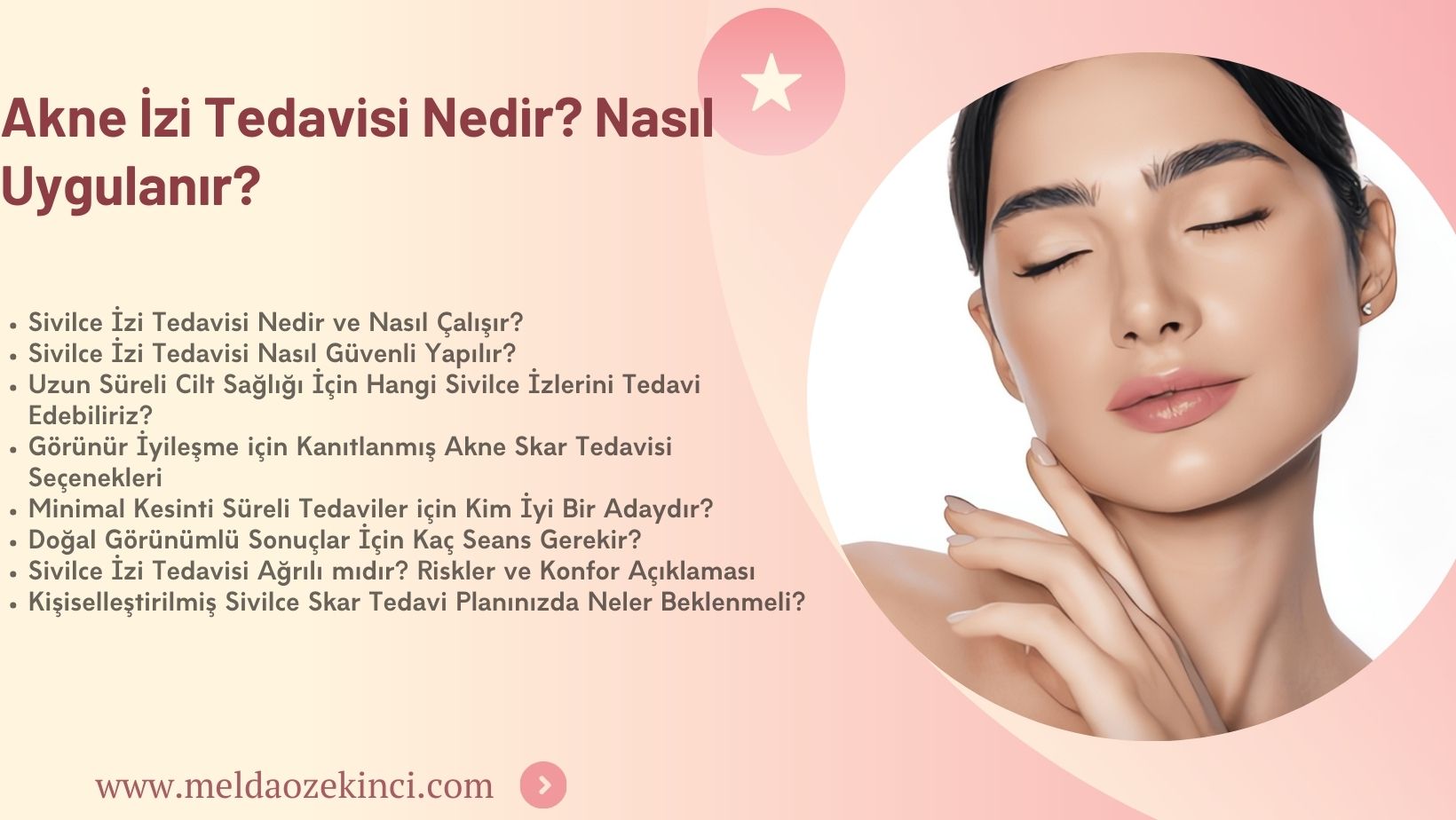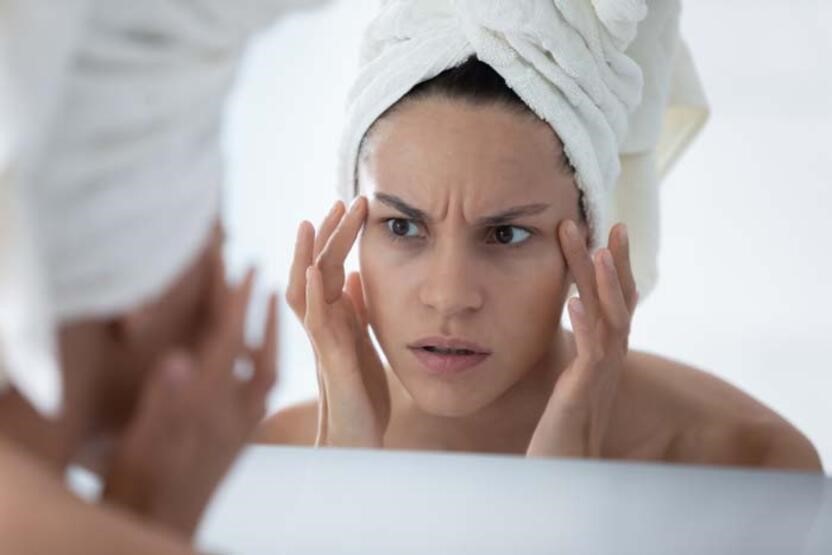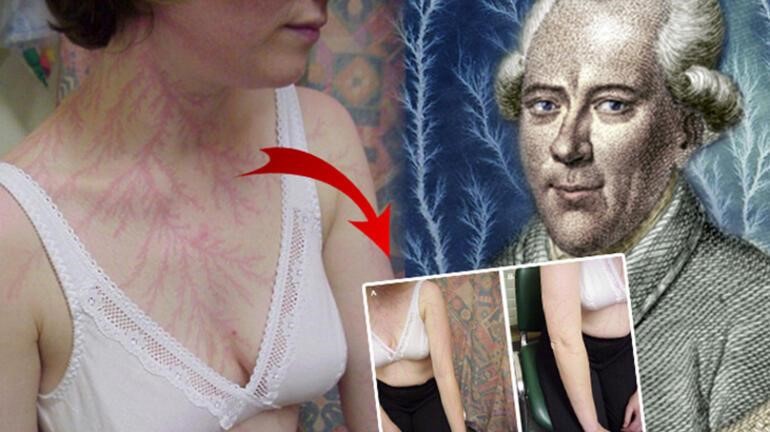Table of Contents
-
What Is the Ideal Daily Skincare Routine for Men?
-
What to Consider in Post-Shave Skincare for Men?
-
What Can Be Done to Reduce Acne and Pimples in Men?
-
What Is the Most Effective Method for Sun Protection for Men?
-
What Can Men Do to Prevent Hair Loss?
-
What Products Should Be Used to Reduce Skin Spots in Men?
-
How Effective Are Natural Skincare Products for Men?
-
Which Ingredients Are Especially Beneficial for Men's Skin?
What Is the Ideal Daily Skincare Routine for Men?
The ideal daily skincare routine for men is important for maintaining healthy skin and a youthful appearance. This routine may include cleansing, moisturizing, protecting, and addressing specific skin issues. Here are the steps:
-
Cleansing: It's important to cleanse your skin before starting the day and before going to bed. In the morning and before bed, wash your face with a cleansing gel or foam to remove dirt, oil, and toxins accumulated during the day. If your skin is oily, opt for oil-free or foaming cleansers. If you have dry skin, choose a gentle and moisturizing cleanser.
-
Toning: After cleansing, the next step is toning. Apply a few drops of toner to a cotton pad and gently wipe your face. Toners help balance the skin, tighten pores, and even out skin tone.
-
Moisturizing: Using a moisturizer helps balance the skin’s moisture levels and protects your skin. Choose a product suited to your skin type. For oily skin, opt for a lightweight, oil-free moisturizer. For dry skin, choose a richer, more hydrating product.
-
Sun Protection: Using sunscreen protects your skin from harmful UV rays and prevents early signs of aging. Apply sunscreen during your morning routine after your moisturizer. Choose a sunscreen with at least SPF 30 for daily use.
-
Special Care: You can add extra steps for specific needs or skin types. For example, if you experience acne, you might use an acne treatment, or if you’re concerned about aging, incorporate anti-aging products.
By following these steps regularly, you can keep your skin healthy, clean, and youthful. Also, maintaining a healthy lifestyle, getting regular sleep, and eating a balanced diet are crucial for supporting skin health.
Post-Shave Skincare for Men: What to Consider?
Post-shave skincare is important to prevent irritation, dryness, and to mitigate potential problems caused by shaving. Here are some key points to consider:
-
Cool the Skin: After shaving, soothe your skin with lukewarm water or a cold compress. This helps relax the skin and reduce redness.
-
Gently Pat Dry: Gently pat your face dry with a towel after shaving, avoiding harsh rubbing. Lightly press and use a soft towel to prevent irritation.
-
Moisturize: Moisturizing after shaving prevents dryness and irritation. Use a lightweight and hydrating lotion or cream. Avoid products containing alcohol, as they can dry out the skin.
-
Use Aftershave: Aftershave helps soothe the skin and reduce infection risk. Choose an alcohol-free aftershave with soothing properties.
-
Apply Sunscreen: Shaved skin may be more sensitive to the sun. Therefore, applying sunscreen is important. Use sunscreen after shaving to protect your skin from harmful sun exposure.
-
Use Post-Shave Care Products: Specially formulated post-shave products can help protect and soothe the skin. Consider using post-shave lotions or creams.
-
Avoid Excessive Contact: Remember that your skin is sensitive after shaving and avoid excessive rubbing or contact. Apply products gently and lightly to the skin.
Regularly following a post-shave skincare routine helps keep your skin healthy and comfortable. Additionally, using quality shaving products before and after shaving is important.
What Can Be Done to Reduce Acne and Pimples in Men?
Acne and pimples are common skin issues caused by increased oil production, clogged pores, and bacteria. Here are some effective methods to address these issues:
-
Regular Cleansing: Cleanse your skin regularly to reduce acne and pimples. Wash your face with a gentle cleanser at least twice a day—morning and evening. This helps remove excess oil, dirt, and bacteria, preventing clogged pores and acne formation.
-
Moisturize: Moisturizing helps prevent dryness and is crucial in acne treatment. For oily skin, choose lightweight, oil-free moisturizers. Look for products labeled "non-comedogenic" or "for acne-prone skin" to prevent acne.
-
Use Acne Products: Many over-the-counter or prescription acne treatments are available. Active ingredients like salicylic acid, benzoyl peroxide, and retinoids can be effective. Consult a dermatologist before using these products.
-
Diet and Lifestyle: Some studies suggest that high glycemic index foods and dairy products may worsen acne. A balanced diet, drinking plenty of water, and regular exercise can improve skin health and reduce acne.
-
Protect Your Skin: Avoid squeezing or picking at acne, as it can irritate the skin and increase infection risk. Instead, avoid touching affected areas and clean your skin gently.
-
Consult a Dermatologist: For persistent acne and pimples, it’s important to see a dermatologist. They can provide a tailored treatment plan and recommend prescription medications or procedures if needed.
Acne and pimples can be managed with regular care and the right treatments. Since everyone’s skin is different, finding the most effective treatment may require patience and consultation with a specialist.
What Is the Most Effective Method for Sun Protection for Men?
Sun protection is crucial to shield the skin from harmful UV rays, reducing the risk of skin cancer, early aging signs, and other skin issues. The most effective sun protection methods include:
-
Use Sunscreen: Sunscreen is the most effective way to protect the skin from harmful UV rays. Sunscreens are typically labeled with SPF (Sun Protection Factor). Choose a sunscreen with at least SPF 30 for daily use. Also, select a water-resistant, broad-spectrum (blocking both UVA and UVB rays) sunscreen.
-
Regular and Adequate Application: Apply sunscreen regularly and in sufficient amounts. Apply it 15-30 minutes before sun exposure and reapply every two hours or after swimming or sweating.
-
Avoid Peak Sun Hours: Avoid direct sunlight during peak hours, from 10:00 AM to 4:00 PM. If you need to be outside, use shade or protective clothing like hats, sunglasses, and UV-protective garments.
-
Wear Sunglasses: Sunglasses protect your eyes from UV rays and reduce skin damage around the eyes. Choose sunglasses with UV protection and broad frames.
-
Wear Protective Clothing: Wearing long-sleeved shirts and pants can help shield your skin from the sun. Consider UV-protective clothing designed for sun protection.
-
Post-Sun Care: After sun exposure, moisturize and soothe your skin. Use aloe vera lotions or moisturizers to calm the skin and reduce sun-induced irritation.
Sun protection is vital for maintaining skin health and reducing the risk of skin cancer. By following these methods, you can protect your skin from harmful sun effects and maintain healthy skin.
What Can Men Do to Prevent Hair Loss?
Hair loss is a common concern that can negatively impact quality of life. However, there are several effective methods to prevent or reduce hair loss:
-
Healthy Diet: A balanced diet is crucial for hair health. Nutrients like protein, iron, omega-3 fatty acids, zinc, vitamins A, C, E, and biotin are critical. Include healthy and varied foods such as fish, eggs, leafy greens, fruits, nuts, and whole grains in your diet.
-
Keep the Scalp Clean: A clean scalp is essential for healthy hair. Accumulated oil, dirt, and product residue can clog hair follicles and lead to hair loss. Regularly clean the scalp to prevent this.
-
Protect Hair from Heat and Chemicals: Heat treatments like blow drying, curling, and straightening, and excessive use of chemical hair products can weaken hair and cause it to fall out. Minimize heat exposure and use natural or lightly formulated products.
-
Manage Stress: Stress is a major factor in hair loss. Manage stress with techniques like yoga, meditation, deep breathing exercises, or hobbies to help reduce stress levels.
-
Use Hair Loss Treatments: If hair loss persists, consult a dermatologist or specialist. They may recommend shampoos, lotions, supplements, or medications specifically formulated for hair loss.
-
Scalp Massage: Regular scalp massage can improve blood circulation and nourish hair follicles, potentially reducing hair loss.
Applying these methods to prevent or reduce hair loss helps maintain healthy hair. For serious hair loss problems, consulting a specialist is crucial.
Which Products Should Be Used to Reduce Skin Spots in Men?
Skin spots can result from sun exposure, hormonal changes, aging, and acne, leading to uneven skin tone. Here are some effective products and ingredients to reduce skin spots:
-
Sunscreen: One major cause of skin spots is harmful UV rays from the sun. Using sunscreen helps prevent new spots and prevents existing spots from becoming more pronounced. Choose a broad-spectrum sunscreen with at least SPF 30.
-
AHA and BHA Acids: Alpha hydroxy acids (AHAs) and beta hydroxy acids (BHAs) help exfoliate the skin’s surface and promote cell renewal, reducing skin spots. AHA products generally even out skin tone, while BHA products control oil and help diminish acne spots.
-
Vitamin C: Vitamin C is an effective antioxidant that evens out skin tone and lightens spots. Regular use of serums or creams containing Vitamin C can help reduce the appearance of spots.
-
Retinoids: Retinoids, available in various strengths, stimulate collagen production and enhance skin turnover. They can help fade dark spots and improve overall skin texture. Consult with a dermatologist to choose the appropriate retinoid product.
-
Niacinamide: Niacinamide, also known as Vitamin B3, helps reduce hyperpigmentation, improve skin texture, and even out skin tone. Look for serums or creams containing niacinamide.
-
Hydroquinone: Hydroquinone is a skin-lightening agent that can help reduce dark spots. It should be used under the guidance of a dermatologist due to its potency.
By using these products consistently, you can effectively manage and reduce skin spots. A combination of sun protection and targeted treatments yields the best results.
How Effective Are Natural Skincare Products for Men?
Natural skincare products use plant-based ingredients and minimal synthetic chemicals, which many people prefer. The effectiveness of these products varies based on individual skin types and concerns:
-
Gentleness: Natural products often contain fewer synthetic ingredients, which can be gentler on sensitive skin. They are less likely to cause irritation compared to some conventional products.
-
Ingredient Benefits: Ingredients like aloe vera, green tea, chamomile, and essential oils offer various benefits. For instance, green tea is rich in antioxidants, while aloe vera is known for its soothing properties.
-
Fewer Additives: Natural products usually avoid harmful additives like parabens, sulfates, and artificial fragrances. This makes them a suitable choice for individuals with sensitive skin or allergies.
-
Individual Responses: The effectiveness of natural skincare products can vary. While some may find natural products effective, others may not experience the same results. Testing and finding products that suit your specific skin needs is essential.
-
Consultation and Research: When choosing natural products, research the ingredients and their benefits. Some natural products may still cause reactions or not perform as expected. Consulting a dermatologist can help in finding suitable options.
Natural skincare products offer a gentler alternative with many benefits. However, individual effectiveness may vary, so finding the right product for your skin type and needs is important.
How Effective Are Natural Skincare Products for Men?
Natural skincare products can also be highly effective for men and offer many benefits. Here are some reasons why natural skincare products can be effective for men:
Less Irritation: Natural skincare products usually do not contain synthetic chemicals. Therefore, they cause less irritation on the skin and can be particularly suitable for men with sensitive skin. Natural products free from synthetic fragrances, colorants, and preservatives help maintain the skin's natural balance and keep your skin healthier.
Benefits of Natural Ingredients: Natural skincare products often contain plant extracts, oils, vitamins, and minerals. These natural ingredients help moisturize, nourish, and repair the skin. For example, ingredients like argan oil, shea butter, aloe vera, and green tea extract can benefit your skin and help keep it youthful and healthy.
Reduced Chemical Exposure: Cosmetic products containing synthetic chemicals can be absorbed by the skin and enter the body, potentially causing long-term health issues. Since natural skincare products contain fewer chemicals, they reduce this risk and allow you to care for your skin more safely.
Environmentally Friendly: Natural skincare products are often produced using eco-friendly methods and packaging. This helps minimize environmental impact and contributes to the preservation of natural resources.
Fragrance and Texture: Natural skincare products generally have pleasant, natural scents. Additionally, their light and natural textures are easily absorbed by the skin, providing faster effects.
However, the effectiveness of natural skincare products can vary from person to person, as everyone’s skin type is different. Natural products may be highly effective for some, while others may benefit more from products formulated with synthetic ingredients. Therefore, it is important to consider your skin type and needs and consult a dermatologist or skincare specialist before trying natural skincare products.
Which Ingredients Are Especially Beneficial for Men's Skin?
Several ingredients are beneficial for maintaining healthy and youthful skin. Here are some key ingredients to look for in skincare products for men:
-
Hyaluronic Acid: Hyaluronic acid helps retain moisture and hydrate the skin, making it an excellent choice for dry or aging skin.
-
Salicylic Acid: Salicylic acid helps exfoliate the skin and clear clogged pores, making it effective for acne-prone and oily skin types.
-
Vitamin C: Vitamin C is an antioxidant that helps brighten the skin, reduce dark spots, and protect against environmental damage.
-
Niacinamide: Niacinamide helps improve skin texture, even out skin tone, and reduce the appearance of pores. It is also known for its anti-inflammatory properties.
-
Retinoids: Retinoids help promote cell turnover, reduce wrinkles, and improve skin texture. They are beneficial for anti-aging and overall skin health.
-
Peptides: Peptides help stimulate collagen production, which can improve skin elasticity and firmness. They are useful for reducing signs of aging.
-
Sunscreen Agents (like Zinc Oxide or Titanium Dioxide): These ingredients provide broad-spectrum sun protection and prevent UV-induced skin damage.
-
Tea Tree Oil: Tea tree oil has antibacterial properties, making it effective for treating acne and other skin conditions.
Selecting products with these beneficial ingredients can help maintain healthy skin, address specific concerns, and improve overall skin appearance.
 English
English 


